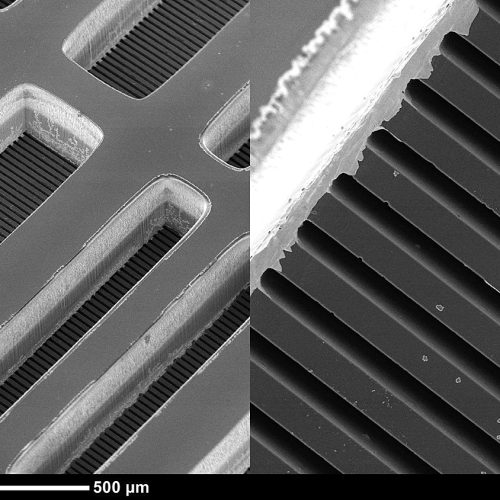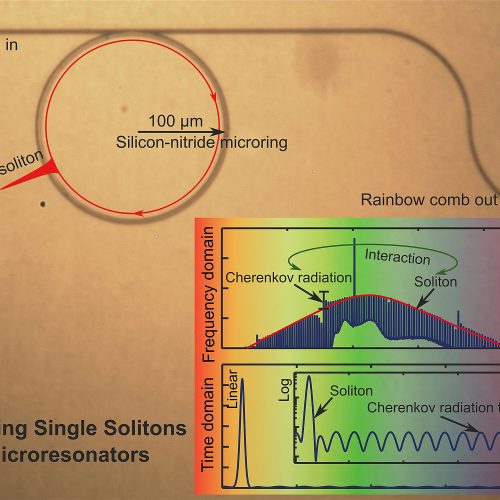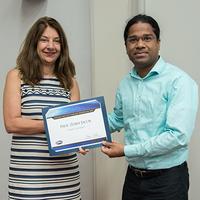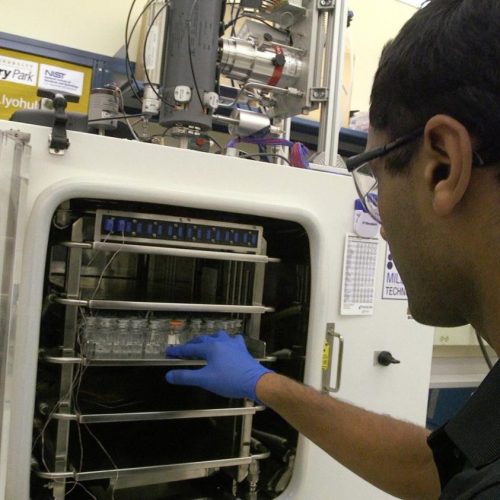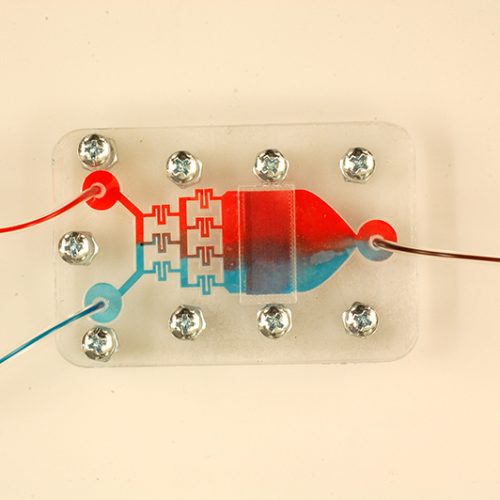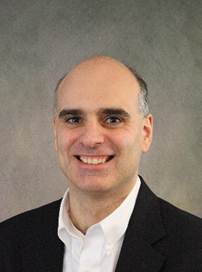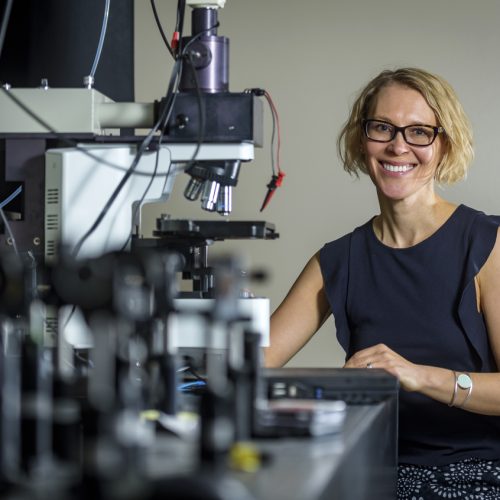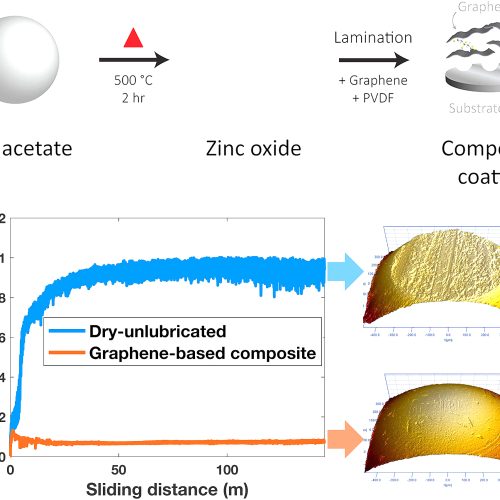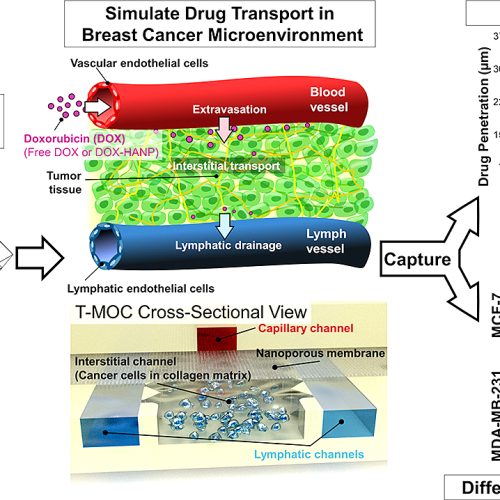
November 2, 2017
Microfluidic device simulates cancer treatment as effectively as research animals
WEST LAFAYETTE, Ind. — A new technology that simulates tumors has been shown to perform as well as research animals in testing chemotherapy drugs, representing a potential tool for screening drugs before treating a patient.
A long-term goal is to incorporate biopsied cancer cells from patients and test the effectiveness of different drugs on the patient-derived cells, said Bumsoo Han, a Purdue University professor of mechanical and biomedical engineering.
